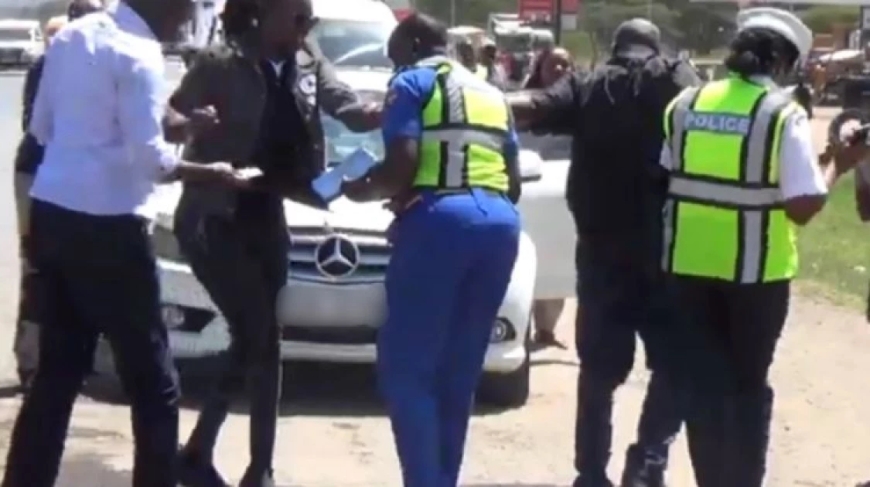Four Traffic Police Officers Nabbed in Bribery Crackdown Along Nairobi–Nyeri–Embu Highway

Detectives from the Ethics and Anti-Corruption Commission (EACC) on Thursday, August 28, arrested four traffic police officers over allegations of soliciting and receiving bribes from motorists along the Nairobi–Nyeri–Embu Highway.
According to the Commission, the arrests followed an undercover operation mounted after a series of complaints from motorists, matatu operators, and truck drivers who claimed they were being extorted by rogue traffic officers. Acting on these tip-offs, EACC officials staged a sting operation that netted the suspects in the act.
Three of the officers were stationed at the Makutano Traffic Base, while the fourth was attached to the Juja Traffic Base in Embu County. After their arrest, the suspects were transferred to the EACC Integrity Centre in Nairobi for questioning and formal processing.
“Investigations are ongoing, and the officers are expected to face corruption-related charges once the process is complete,” the Commission stated.
The operation underscores the government’s ongoing battle against entrenched corruption within the police service, an institution long perceived by Kenyans as deeply compromised. A recent survey conducted by the EACC painted a troubling picture, placing the police at the top of the list of the most corrupt public officials, with 47 percent of respondents citing the service as the most unethical. County officials followed closely behind.
The same report highlighted that bribery remains a pervasive reality for many Kenyans, particularly when seeking access to essential services, employment opportunities, or favorable outcomes in administrative and legal processes. However, many victims admitted they often refrain from reporting incidents due to intimidation or lack of trust in the institutions mandated to tackle corruption.
EACC Chairperson David Oginde noted that the Commission is determined to dismantle this culture of impunity. “Some victims of corruption do not report due to fear of intimidation or because they lack faith in the institutions responsible for dealing with corruption,” he said, stressing the importance of restoring public confidence.

 Fenny Lang'o
Fenny Lang'o 





